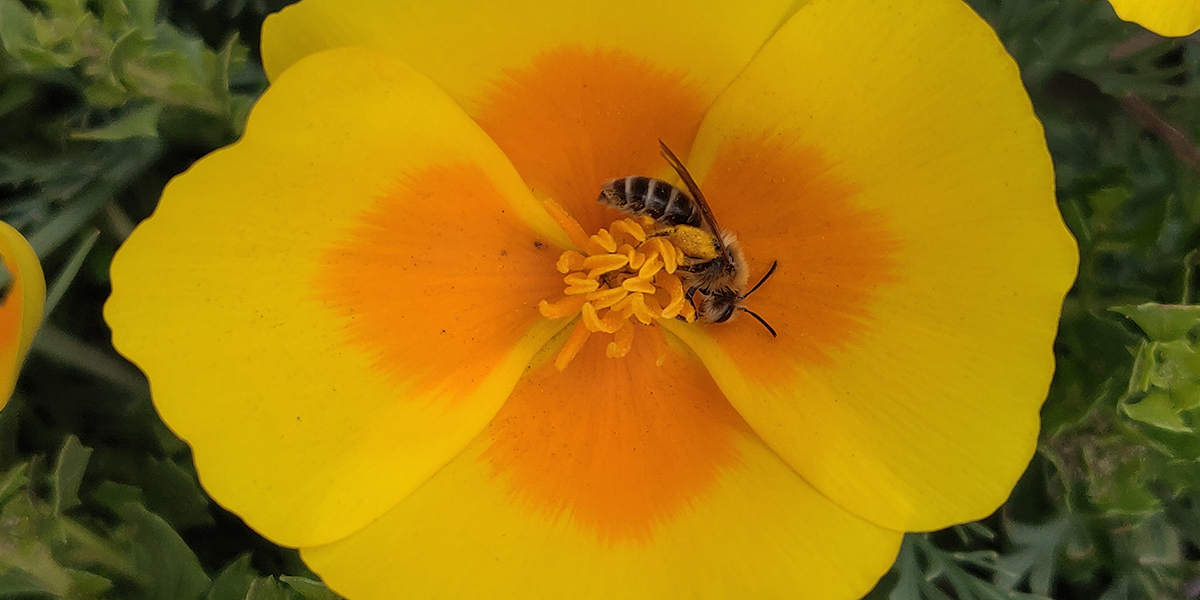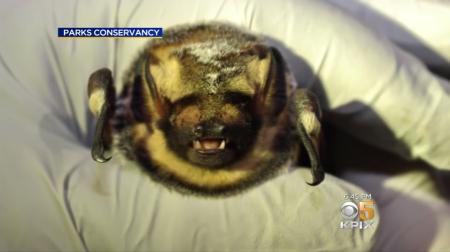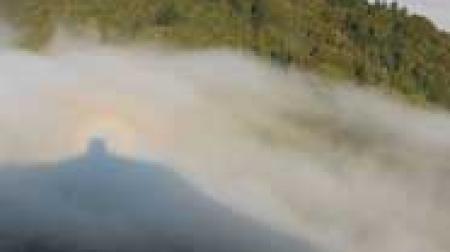
Photo: Sara Leon Guerrero/Parks Conservancy
Tamalpais Bee Lab News
- In 2026, we're kicking off a new volunteer-supported effort to learn more about the San Francisco Leaf-cutter Bee, called One Tam Bee Watch. Learn more below, and register for an informational webinar on February 18, 2026 at 6 pm >>
- Following our successful 2025 season of supporting the California Bumble Bee Altas, we'll be surveying this important and charismatic group of bees again this year. Stay tuned to this page and sign up for our newsletter to register for dates.
- In 2024, our search party for the San Francisco Leaf-cutter Bee (Trachusa gummifera) detected this rare species in Marin County! It hadn't been seen in Marin since 1977. They’re characterized by their unique habit of collecting leaves, potentially resin, and other material to build their nests. There's still so much to learn about this special species and its ecology, so we're excited to welcome volunteers to the One Tam Bee Watch soon. See the news release about this exciting find here and get questions about T. gummifera and bee identification answered here.
Our Activities
What are the Bee Lab's current activities?
We are focused better understanding local bee communities, gathering information to inform future targeted monitoring studies, and contributing local data to broader efforts seeking to study and protect native bees. To achieve these goals, we are taking part in an established program and starting a new effort. Each is described in more detail below, and there are ways for volunteers to get involved in all of them!
California Bumble Bee Atlas (CABBA) is a collaborative community science effort, coordinated by the Xerces Society of Invertebrate Conservation and California Department of Fish and Wildlife, to track and conserve California’s native bumble bee species and contribute to the global understanding of bumble bee distributions. Volunteers are trained by the Xerces Society to conduct a standardized catch-release photography protocol to document bumble bee occurrences throughout the state.
See the latest results that volunteers make possible across the state >>
One Tam Bee Watch is a new field-based effort to learn more about the natural history and ecological requirements of important bee species. In 2026-2028, One Tam Bee Watch will focus on the newly re-detected San Francisco Leaf-cutter Bee (Trachusa gummifera). The data from this program will be used in a three-year natural history study and population assessment. Volunteers will be trained on a standardized observation protocol and will accompany program staff into the field to conduct surveys during the adult flight season. To learn more, join the upcoming informational webinar:
One Tam Bee Watch Volunteer Information Session
February 18, 2026, 6:00 pm, online
The webinar will be recorded, but you must register to receive the recording. Prospective volunteers must either attend live or watch the recording, so please register if you’re interested!
How are surveys conducted?
Each survey has a different protocol that is determined by the study design, but in general each survey involves:
- Visiting a site designated by One Tam agency partners as an area of interest.
- Searching for bees or their nest sites.
- Documenting the bees and/or nest sites with high quality photographs.
- Uploading the photographs and metadata to a portal for identification by experts.
.jpg)
Staff and volunteers participate in a California Bumble Bee Atlas training. Photo: Kelly Sullivan for the Parks Conservancy
Get Involved!
Community science volunteers play a critical role in this work! Volunteers can participate in these efforts in two ways:
- Attend a regularly scheduled TBL event and conduct surveys at predetermined sites with One Tam staff and other volunteers.
- Attend a TBL training in the spring and adopt a predetermined site to conduct surveys by yourself or with your family and friends.
REGISTRATION FOR ALL DATES HERE >>
Our 2026 volunteer event details are not available yet. The registration link (above) will be active again when dates become available. Please sign up for our e-newsletter and check our calendar to hear about all our community science opportunities.
If you have questions, please email communityscience@onetam.org
Background
The Tamalpais Bee Lab is a One Tam effort to monitor and understand more about Mt. Tamalpais' local wild bees and other pollinators.
From 2017-2022, in collaboration with Dr. Gretchen LeBuhn and her lab at San Francisco State University, we completed an initial 2017 survey of Mt. Tam’s wild bees. This work stems from One Tam's Peak Health effort to understand the health of Mt. Tam's natural resources, where we saw we needed to learn more about the region's pollinators.
The initial survey yielded remarkable results, recording 32 genera and 122 bee species from 20 sites managed by Marin Water and California State Parks. You can hear more about these results from Dr. LeBuhn and Dr. Lisette Arellano, One Tam’s Community Science Sr. Program Manager. We then expanded the survey to other One Tam partner lands in subsequent years. We now have records of 276 bee species in Marin County and believe there could be as many as 300-400! Our most recent results can be found in our 2023 Peak Health report.
Our team has been busy preparing the collections that our volunteers helped us manage over the last year to send to the USDA for species identification. For 2024-25, after a lot of planning, we are transitioning the Tamalpais Bee Lab the targeted monitoring efforts described above, and offering new volunteer opportunities!

